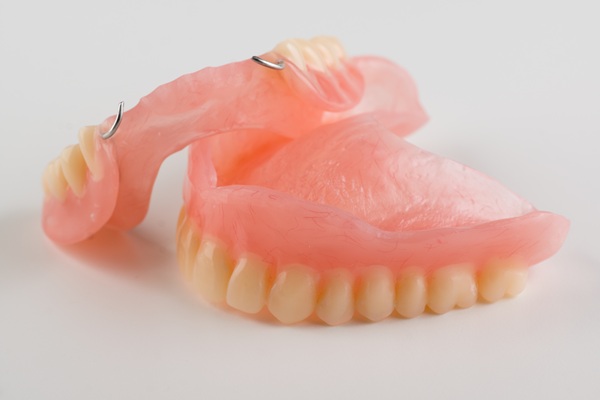What are Signs of TMJ? [Temporomandibular Disorder]

Eating, speaking, chewing gum: All these can suddenly become difficult if there is pain in the temporomandibular joint, or TMJ. Jaw pain can be worrisome, but before panicking, it is important to understand that most TMJ disorders improve with at-home care. Pain may resolve in a few days but can sometimes come back in cycles. For some people, the pain may continue and develop into a significant chronic problem. The effective way to deal with a possible bout of TMJ is to understand what can cause these disorders, what the signs and symptoms are and how to get treatment.
Recognizing and treating TMJ
According to the U.S. Department of Health and Human Services, an estimated 10 million Americans or more experience TMJ disorders, but the causes of jaw pain are varied and sometimes difficult to diagnose. TMJ can occur due to damage or wear and tear to the cartilage in the jaw joint or if the disk that sits between the bones of the joint moves out of place or breaks down, interrupting the smooth movement of the jaw. Gender can also play a role: TMJ is more common in women than in men, but the reason why is not completely known. There are other risk factors as well:
- Jaw trauma
- Genetics
- Teeth grinding and clenching
- Arthritis
- Certain connective tissue diseases
Unfortunately, in many cases, the reasons for developing TMJ are unclear.
Signs and symptoms
Temporomandibular joint pain is often described as a general pain in the chewing muscles and jaw joints. The pain can be concentrated on only one or on both sides of the jaw. Pain can also spread upwards through the face or down into the neck. Range of motion in the joint may be limited, with pain increasing the wider the jaw extends. The top and bottom teeth may not align normally and there may be stiffness or even locking of the jaw. Painful clicking, popping or grinding sounds are not uncommon.
At-home remedies
To help improve the pain through self-care, focus on eating soft foods and using icepacks and gentle stretching techniques to help ease the pain. Try to avoid extending the jaw in actions like yawning or yelling. Acetaminophen, ibuprofen and aspirin are over-the-counter medications that can help reduce inflammation and ease pain. If the pain does not improve or worsens after several days of at-home treatment, consider calling a doctor or dentist.
Further treatment
Once a TMJ disorder has been diagnosed by a doctor or dentist, further treatment can include stronger prescription medications like muscle relaxers or pain relievers. There are oral devices that can help prevent teeth grinding and jaw clenching, which may relieve symptoms and aid in recovery.
Conclusion
The first steps in treating TMJ should be trying the least-invasive remedies. While TMJ pain is never pleasant, it is often temporary and mild pain relief can be all that is needed. In rare cases, surgery or more serious treatments may be necessary. If symptoms worsen or your jaw mobility is extremely limited, call a doctor or dentist to set up an examination.
Request an appointment here: https://www.esdmke.com or call Eastside Dental at (414) 888-4000 for an appointment in our Milwaukee office.
Check out what others are saying about our services on Yelp: Read our Yelp reviews.
Related Posts
A cosmetic dentist often hears concerns about whitening discomfort and can explain why sensitivity sometimes increases during treatment. Whitening products lift stains by allowing active ingredients to move through enamel, which can temporarily irritate the tooth's inner structures. Understanding what causes sensitivity and how to reduce it helps patients pursue a brighter smile more comfortably.Whitening…
Dentures are a widely used solution for individuals who have lost multiple teeth. However, despite their long history and proven effectiveness, several misunderstandings about dentures persist. These misconceptions can lead to unnecessary hesitation or to people not pursuing the care they need, affecting their oral health and comfort. Clarifying these misunderstandings can help those considering…
Routine dental cleanings help maintain the health of your teeth and gums by removing plaque and tartar buildup. However, practicing good oral hygiene at home is essential to prevent oral health issues between visits. Taking proper care of your teeth daily ensures a bright, healthy smile over time.Brushing teeth at least twice daily helps keep…
A dental implant restoration is a significant investment in your oral health. This tooth replacement option offers durability while improving the function and appearance of your smile. However, there are ways how you can ensure the long-term success and integrity of the restoration.Keeping good oral hygiene is important for the longevity of a dental implant…


